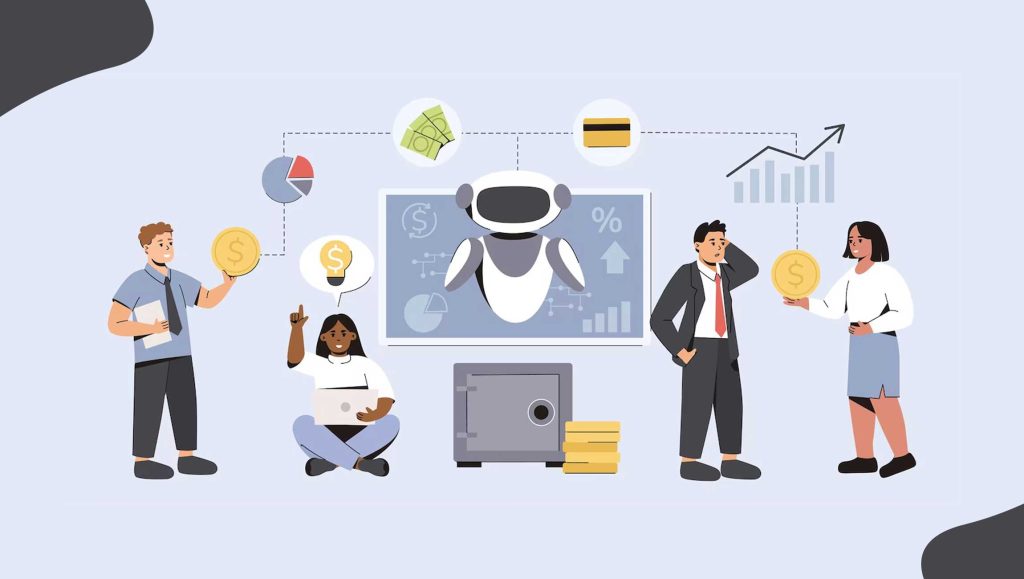In today’s fast-paced and highly competitive business landscape, effective communication plays a pivotal role in driving sales and building strong customer relationships. Enter ChatGPT, a powerful tool that revolutionizes the way sales teams engage with prospects and customers.
Leveraging artificial intelligence and natural language processing capabilities, ChatGPT enables businesses to provide personalized and interactive sales experiences through chat-based interactions. With ChatGPT, sales professionals can deliver real-time responses to customer queries, provide product recommendations, and address concerns promptly. This has been helping with enhancing customer satisfaction and boosting conversion rates.
ChatGPT’s ability to understand and generate human-like responses makes it an invaluable asset for sales teams. It has been allowing them to scale their efforts and handle multiple conversations simultaneously. By utilizing ChatGPT, companies can streamline their sales processes and nurture leads more effectively. They are ultimately in a better position to drive revenue growth.
Let’s explore the myriad ways in which ChatGPT is empowering sales teams, optimizing customer interactions, and accelerating business success in today’s digital era.
Benefits of using ChatGPT for Sales
Using ChatGPT for Sales offers a range of benefits that can significantly enhance a company’s sales processes and customer interactions. Here are six key advantages:
1. Improved Customer Engagement:
ChatGPT enables personalized, conversational interactions with customers, fostering a sense of engagement and building stronger relationships. By providing real-time responses and tailored recommendations, sales teams can create a more positive and interactive experience. This helps with increasing customer satisfaction and loyalty.
2. Enhanced Lead Nurturing:
ChatGPT can automate lead nurturing processes by sending relevant and timely messages to prospects. It can intelligently follow up on inquiries, provide additional information, and guide leads through the sales funnel. This automation saves time for sales professionals and ensures consistent and effective communication.
3. 24/7 Availability:
With ChatGPT, businesses can offer round-the-clock customer support and sales assistance. Customers can receive instant responses to their queries, even outside regular business hours. This availability improves customer experience and eliminates potential delays in the sales process.
4. Scalability and Efficiency:
ChatGPT enables sales teams to handle multiple conversations simultaneously, allowing them to scale their efforts without compromising quality. Sales professionals can focus on high-value tasks while ChatGPT takes care of routine inquiries, reducing response time and increasing efficiency.
5. Data-driven Insights:
ChatGPT can analyze customer conversations and provide valuable insights into customer preferences, pain points, and buying behavior. Sales teams can leverage these insights to personalize their approaches, tailor product recommendations, and identify opportunities for upselling or cross-selling.
6. Training and Onboarding Tool:
ChatGPT can serve as a training and onboarding tool for sales representatives. It can provide real-time guidance, suggest effective responses, and offer product knowledge support. This helps new team members quickly get up to speed and ensures consistency in sales messaging across the organization.
Read More: SalesTechStar Interview with Juan Jaysingh, CEO at Zingtree
How are businesses leveraging ChatGPT for Sales?
Recent industry updates indicate a growing trend of brands and sellers utilizing ChatGPT for sales purposes. Let’s take a quick breakdown of how businesses have been leveraging this technology:
1. Customer Support Automation:
Several companies have implemented ChatGPT to automate their customer support systems. It allows businesses to handle a large volume of customer inquiries efficiently, providing quick and accurate responses.
2. Personalized Recommendations:
Brands are using ChatGPT to offer personalized product recommendations to customers. By analyzing customer preferences and purchase history, the AI-powered system suggests relevant products, enhancing the overall shopping experience.
3. Lead Generation and Qualification:
ChatGPT assists in generating and qualifying leads by engaging potential customers through interactive conversations. It gathers information and qualifies leads based on predefined criteria. Thereafter it forwards qualified leads to the sales team for further nurturing.
4. Order Placement and Tracking:
Sellers have integrated ChatGPT into their platforms to facilitate seamless order placement and tracking. Customers can inquire about product availability, place orders, and receive real-time updates on order status, creating a hassle-free buying experience.
5. Upselling and Cross-selling:
Businesses have utilized ChatGPT to identify upselling and cross-selling opportunities. By analyzing customer interactions, the system recommends complementary products or upgrades, increasing the average order value and boosting sales.
6. Virtual Sales Assistants:
Some brands have deployed ChatGPT as virtual sales assistants. These AI-powered assistants engage with customers, provide product information, answer queries, and guide customers through the purchase process. This approach emulates the experience of interacting with an in-store salesperson.
7. Training and Knowledge Sharing:
ChatGPT has been employed as a training tool for sales teams. It helps onboard new sales representatives by offering real-time guidance, suggesting responses, and providing product knowledge support. This ensures consistent and effective sales messaging.
8. Analytics and Insights:
The data collected from customer interactions with ChatGPT is analyzed to gain valuable insights. Brands can understand customer preferences, pain points, and behavior patterns. They are then able to make data-driven decisions and refine their sales strategies.
To Conclude
The use of ChatGPT for sales has become increasingly prevalent in recent times. From customer support automation to lead generation, businesses are harnessing the power of AI to enhance customer experiences, drive conversions, and stay ahead in the competitive marketplace. The future holds even more potential for ChatGPT as an indispensable tool in sales and customer engagement.
Read More: A 2024 Guide On Hyperlocal Delivery Business Models





















